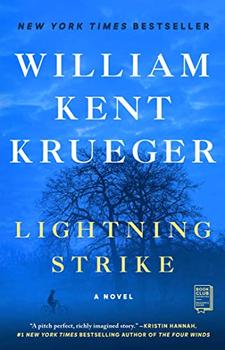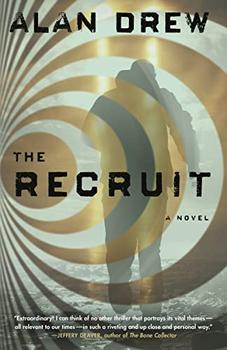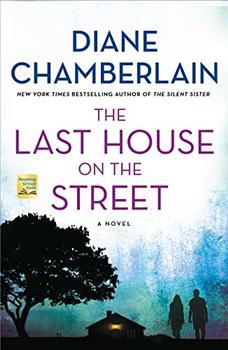Summary | Excerpt | Reading Guide | Reviews | Beyond the book | Read-Alikes | Genres & Themes | Author Bio

Cork O'Connor Mystery Series #18
by William Kent KruegerIt is the summer of 1963 in Tamarack County, Minnesota. Just outside the small town of Aurora, nestled next to shimmering Iron Lake, 12-year-old Cork O'Connor makes a grisly discovery. Hiking into the infamous burned-out logging camp called Lightning Strike, Cork and his friend, Jorge, find the body of Big John Manydeeds hanging from a tree near the edge of the forest. Scattered beneath his lifeless, dangling feet, are empty bottles of the whiskey he swore off months ago. Sheriff Liam O'Connor, Cork's father, is called out to the scene to investigate, with all the evidence pointing toward suicide. But those who knew Big John in life don't believe it, including Cork, who plunges into a summer of sleuthing to find answers to the senseless death of his revered older friend.
Big John's death rocks the close-knit Ojibwe community on the Indian Lake Reservation and presents a powder keg puzzle for Liam O'Connor. Krueger deftly portrays the lingering and fiery resentment of the Native community to white authority. Even though Liam is married to Colleen, who is half Ojibwe, he feels the continuing sting of the community's rejection because of his whiteness. These longstanding tensions ratchet up exponentially as Big John's body is laid to rest and a local Ojibwe girl is found murdered, with local authorities eager to pin the crime on Big John. Tempers run high on all sides in the steamy summer of 1963 as Cork and his friends begin to "follow the crumbs," searching for fleeting scraps of evidence, information, and motive. It's a defining moment for Cork, who readers of Krueger's other novels in this series know will grow up to become a sheriff.
A fitting element to this creation story is Krueger's touching portrayal of a father and son seeing each other for the first time. Liam wants to protect his son, who is quarter Ojibwe, from the endemic racism in the white community, but also the disdain that "mixed bloods" receive from the Ojibwe people. On the cusp of becoming a teenager, Cork in turn wants to prove to his father that he can help in the investigation, no matter the slights he receives. As Cork talks to neighbors and collects money for his paper route among the locals — many endearing, others reprehensible — the crumbs he gathers start to suggest Big John was murdered. Sharing information and theories at the morning breakfast table, father and son unwittingly help each other in their separate quests for the truth.
Krueger delivers a masterful strike down the middle with the riddle of Big John's death; Lightning Strike will keep experienced mystery readers guessing until the very end about who was responsible and how it was engineered. Spooling out the mystery among the thick pines of the North Woods, the atmosphere is ripe for both exploration and danger, acting as a tantalizing proving ground for Cork and his friends. In these moments, Krueger summons a hazy nostalgia for long-ago summers of adventure, where boys could take canoe trips and camp overnight by themselves. But there will be a price to pay for their fearless inquisitiveness.
For those new to the series, Lightning Strike is a prequel that also works as a powerful standalone novel, richly told and sensitive to the issues of race and class between "The First People" and their white neighbors. It also reveals the epic events that shaped a young, malleable Cork O'Connor into the man he becomes. Longtime fans of the series will rejoice at the evocative backstory, while new readers (of which I am one) will finish this book and eagerly seek out the others.
![]() This review was originally published in The BookBrowse Review in October 2021, and has been updated for the
August 2022 edition.
Click here to go to this issue.
This review was originally published in The BookBrowse Review in October 2021, and has been updated for the
August 2022 edition.
Click here to go to this issue.

If you liked Lightning Strike, try these:

by Alan Drew
Published 2023
An idyllic California town. A deadly secret. A race against killers hidden in plain sight...

by Diane Chamberlain
Published 2023
A community's past sins rise to the surface in New York Times bestselling author Diane Chamberlain's The Last House on the Street when two women, a generation apart, find themselves bound by tragedy and an unsolved, decades-old mystery.
Your guide toexceptional books
BookBrowse seeks out and recommends the best in contemporary fiction and nonfiction—books that not only engage and entertain but also deepen our understanding of ourselves and the world around us.